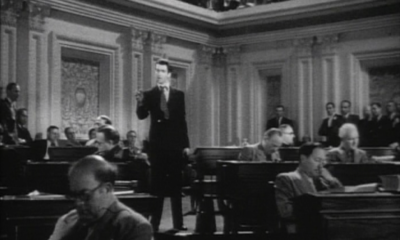Guest Columns
The Unbearable Lightness of Seeing
The following is a condensed version of “The Unbearable Lightness of Seeing” by Rachel Lu, published at Law & Liberty.

The following is a condensed version of “The Unbearable Lightness of Seeing” by Rachel Lu, published at Law & Liberty.
A year or so after we were married, my husband asked me a question. It was unexpected, but it started a train of thought that returned to me as I was reading David Brooks’ latest book, How to Know a Person.
Why are people constantly talking to me on planes? It was a common occurrence. My husband would pop in his earphones, take his Dramamine, and doze off, only to wake up hours later and find me still listening to the sad life story of the person on the other side.
I usually don’t mind. Some of these conversations are rather poignant. Some people discover that I’m religious, and start explaining why they left their childhood faiths. Once a father, on his way to visit young children from whom he was largely estranged, heard I was a mother and immediately broke my heart by asking for basic tips on how to interact with his kids. (How do you read a story to a child? Do they really like to be thrown into the air?)
I have more than once found myself staring at a baggage claim, musing on whether I ought to extend Airplane Rachel into other spheres of life. Brooks seems to think that we should go through our daily lives making a regular and concerted effort to “see” everyone around us, opening ourselves emotionally and dropping our protective barriers. Having read and considered his argument, I think it’s mostly wrong. “Openness” is not the key to resolving our modern epidemic of loneliness.
Brooks is surely right that humans crave intimacy and connection. But every human interaction cannot be the airplane encounter. People feel relatively free to unburden themselves on planes because, even though we are at close quarters, we are also surrounded by others. Most importantly, it’s unlikely you’ll ever see your airplane seat-mate again. In most contexts, emotional intimacy, like physical intimacy, can be dangerous and destructive if it happens in the wrong context. Teenagers learn this on the internet every day.
People today are lonely because the more ordinary context in which they naturally seek intimacy has largely eroded. We haven’t lost our intrinsic ability to connect deeply with other people. Rather, we’ve lost the structures, associations, and forms of community that enable that connection to happen in healthy ways.
Unfortunately, Brooks does not seem to have a good grasp on the difference between morals and manners. Cads and con artists are often extremely good at making people “feel seen.” Demagogues have a superb instinct for reading moods. Does that immediate sense of connection really reveal who truly care about us? Intimacy should happen in the context of existing relationships because the people whose lives are deeply intertwined with ours have much better reasons to promote our real good, instead of using that intimate knowledge and familiarity to take advantage of us, or else just walking away and leaving us alone with our vices.
Brooks, though, has been telling us a similar story for years, in book after book about meritocracy and misplaced priorities. The plot is simple. Once, people cared about moral formation, and even our schools “thought it was their primary job to turn out people of character, people who would be honest, gentle, and respectful towards those around them.” Today we’re all narcissistically focused on career success, and the remedy is to be more other-oriented, following the road to character or finding the “second mountain” or whatever today’s metaphor may be. Stop being selfish and go make someone happy!
Outside of elite culture (which has always been Brooks’ real specialty), I can’t see this as a helpful diagnosis. America’s loneliest people are not busily raising Organization Kids; more likely they are spending several hours each day playing video games, aimlessly surfing, or watching porn, with absolutely no expectation that they will ever be interviewed for a fancy job. They’re not isolated by meritocracy. They’re isolated by purposelessness, and the empty pleasures that fill empty time.
For the record, most young children do like to be thrown into the air. I don’t know that because I’m such a wonderful, “other-centered” person. I know it because I have children. I’ve lived with them for quite a number of years, and inevitably you learn a few things about kids. For most people across history, it is family life, not cognitive psychology or self-help books, that supplied the first tutorial in virtue. Perhaps if we could have more of them, I’d finish my books on airplanes.
This article was originally published by Law & Liberty Exclusive and made available via RealClearWire.
Rachel Lu is an Associate Editor at Law & Liberty and a Contributing Writer at America Magazine. After studying moral philosophy at Cornell, she taught for several years before retiring to focus on the moral formation of her own five sons. She writes on politics, culture, religion, and parenting.
-

 Executive4 days ago
Executive4 days agoSecret Service chief gets no solace
-

 Executive3 days ago
Executive3 days agoWaste of the Day: Louisville Taxpayers Pay Nearly $600,000 For Empty Building’s Maintenance, Security
-

 Guest Columns4 days ago
Guest Columns4 days agoFear Itself: Democrats’ Favorite Strategy Caused Their Current Chaos
-

 Executive3 days ago
Executive3 days agoWhere is Joe Biden – or Jill?
-

 Executive1 day ago
Executive1 day agoWaste of the Day: Throwback Thursday: Cities Used Crime Prevention Funds on Soccer Games, Paper Shredding
-

 Executive2 days ago
Executive2 days agoFacile and politically motivated suggestions
-

 Civilization4 days ago
Civilization4 days agoBuild Iron Dome in the United States To Prepare for Israel’s Worst Day
-

 Executive4 days ago
Executive4 days agoThe Emerging GOP Plan To Beat Kamala Harris















Excellent article.